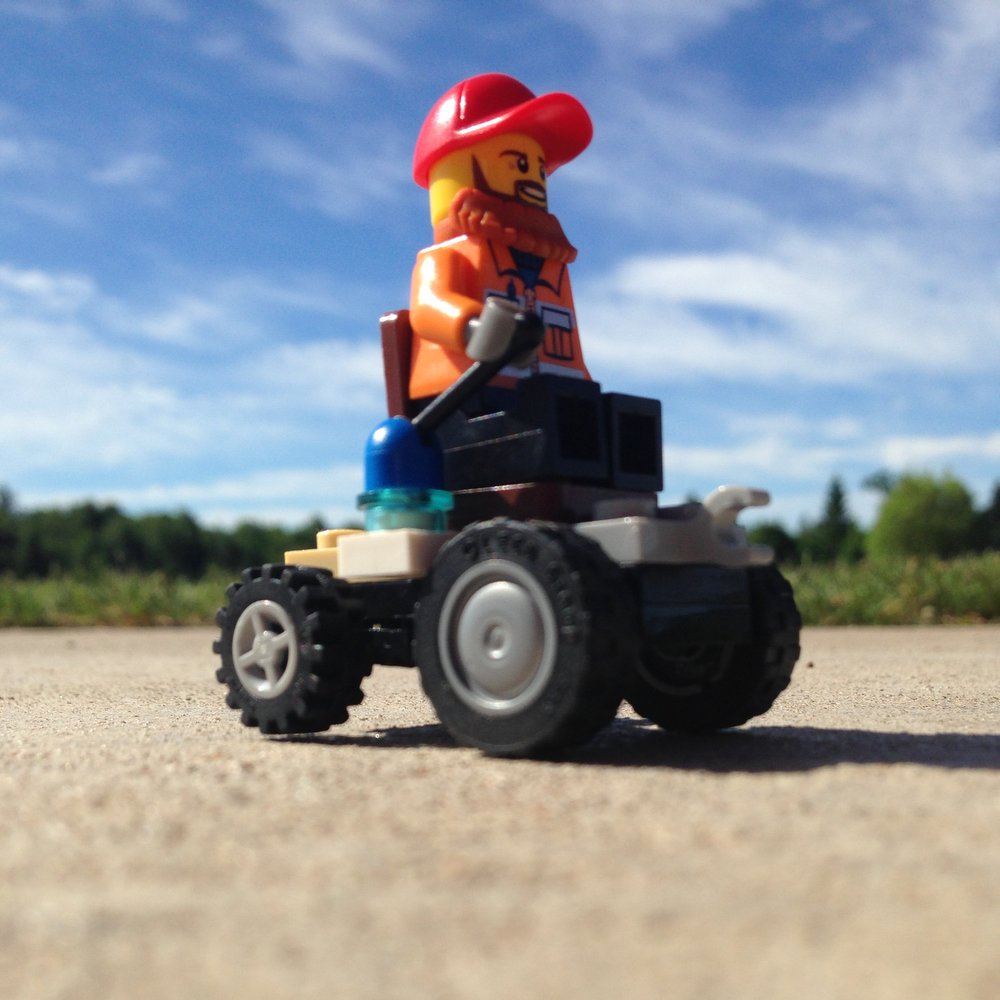Finding purpose in parenting with ALS
A columnist pays tribute to her husband's commitment to being present
Written by |

After my husband, Todd, was diagnosed with ALS at age 39, he grieved the loss of his career and struggled to find a sense of purpose.
When he was healthy, he’d hoped to take on new roles with his company and advance in management, but all of that became out of reach as he increasingly lost the ability to care for himself, much less work a demanding job. After two years with ALS, he had to stop working completely. What was he to do now that his career had ended?
Todd was never one to sit still. Even outside of his day job, he was active doing home renovations or yard work. He enjoyed blowing snow and mowing. He dreaded the thought of an immobile life.
Todd looked to other people with ALS. A professor was still doing research even though he used a ventilator through a tracheostomy and eye-gaze technology to speak and write. Another man shared his thoughts in a blog about living with ALS, and his words comforted others. Another man didn’t have a significant public presence, but his widow said he was a constant presence in his kids’ lives. After hearing about him, Todd said, “Isn’t that enough?”
As Todd became dependent on me for his care, I assumed all of the responsibilities of maintaining the household and providing physical care for our two children. Fourteen years have passed since Todd’s diagnosis, and now we have one child leaving for college and another entering high school.
Teamwork matters
A few months ago, I met with a therapist to process some of the challenges of living with ALS. The therapist asked me, “How long have you felt like a single parent?”
I was taken aback by the question. “Never,” I replied.
Todd can’t help with much of the day-to-day work of running a household, but when it comes to parenting, I don’t feel alone. When our kids were younger and in a bickering phase, I told Todd, “You cannot die and leave me alone with them.”
Todd fortunately stuck with us — not that he had a direct say in how long he lived, but he did have a choice in whether to engage.
Thankfully, we got through that stage, and throughout the disease’s course, I’ve felt a sense of teamwork in our co-parenting. We agreed on setting appropriate boundaries for the kids. He backed me up when I disciplined them, and I sought his feedback and we discussed how situations should be handled. It’s helpful to have a second perspective when parenting. We celebrated the joys of our kids’ growth and successes together. My husband has been just as invested in the well-being of our kids as I have, and we continue to be a team.
When Isaac was little, Todd couldn’t get down on the floor to play with him and his Legos, but he provided the voice of Mr. Mayor in Isaac’s Lego city.

In 2016, Kristin Neva’s then 6-year-old son son, Isaac, built a Lego wheelchair for Mr. Mayor. (Courtesy of Kristin Neva)
Todd couldn’t show Isaac how to change the oil in his dirt bike, but he coached him through it. He celebrated and encouraged Sara’s passions for dance, and they share a love of music. Todd shares “music you should know,” songs from the 1970s, ’80s, and ’90s, and Sara introduces her dad to newer artists.
We went to hockey games and other community events for a number of years. Now that Todd is homebound, we don’t go anywhere, but we still have family movie nights.
I’ve gotten to know other families with the disease through social media, and sometimes caregiving spouses express frustration that the person with the disease has checked out. Those situations sadden me greatly.
It’s difficult for some to remain engaged as they grieve the loss of their health and independence. Some people with the disease struggle with depression or frontotemporal dementia. In some situations, the person with ALS needs to use communication devices that make it difficult to respond quickly or spontaneously. That can be frustrating for both the parent and the kids.
However, I celebrate when I see parents doing what they can. I celebrate those parents with ALS who, like Todd, have been a constant presence in their kids’ lives.
Happy Father’s Day!
Note: ALS News Today is strictly a news and information website about the disease. It does not provide medical advice, diagnosis, or treatment. This content is not intended to be a substitute for professional medical advice, diagnosis, or treatment. Always seek the advice of your physician or other qualified health provider with any questions you may have regarding a medical condition. Never disregard professional medical advice or delay in seeking it because of something you have read on this website. The opinions expressed in this column are not those of ALS News Today or its parent company, Bionews, and are intended to spark discussion about issues pertaining to ALS.







Anonomous
Thanks, Kristin. I'm a father who was diagnosed a year ago and it really helps to read this.